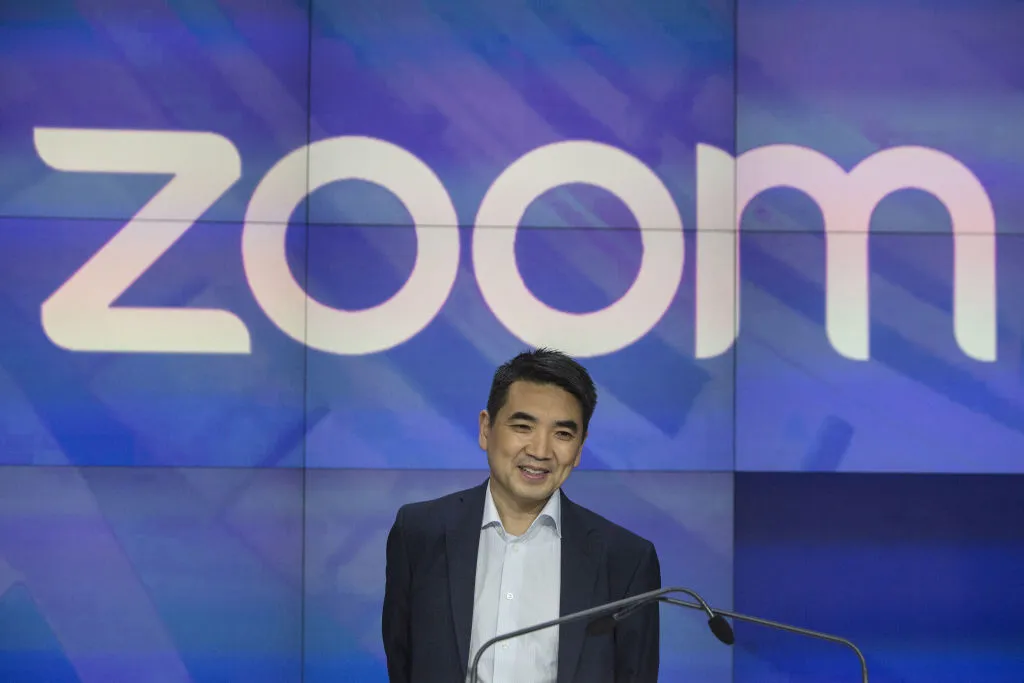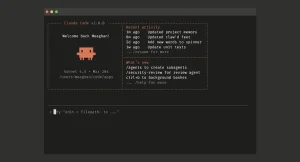Zoom CEO Eric Yuan: AI Will Reduce Our Workweek

Image Credits:Bloomberg / Getty Images
The Future of Work: Eric Yuan’s Vision for AI and Shortened Workweeks
In a groundbreaking discussion at the TechCrunch Disrupt 2025 conference, Eric Yuan, the founder and CEO of Zoom, shared his visionary thoughts on how artificial intelligence (AI) can revolutionize the workplace. Yuan believes that with the advent of AI assistants, the traditional five-day workweek may soon be a relic of the past. He emphasized Zoom’s commitment to integrating AI technologies into their videoconferencing solutions, showcasing features like the “digital twin,” where an AI avatar can represent users in meetings.
Embracing AI in Videoconferencing
During his keynote address, Yuan revealed his experiences using an AI avatar during an earnings call with investors. This innovative application demonstrated not just the technology’s capabilities but also its potential to expand the boundaries of how we communicate in a professional setting. The “digital twin” feature represents a significant leap, allowing users to have a digital stand-in that can engage in conversations on their behalf. This advancement could drastically reduce the time spent in monotonous meetings, making communication more efficient.
The Focus on AI Strategy
Yuan emphasized the importance of focusing on AI, reiterating his commitment to integrating it into Zoom’s product offerings. When asked about Zoom’s investments, his succinct reply was a clear directive: “AI, AI, and AI.” The company’s leadership dedicates extensive hours to strategizing on how to integrate AI technologies to optimize their business model. Yuan firmly believes that AI holds transformative potential, not just for Zoom but across various industries.
Zoom’s leadership team engages in multi-hour strategy meetings to discuss the best ways to leverage AI. This intentional focus further confirms their vision of making the workplace more productive and innovative through advanced technologies.
Expanding Use Cases for AI Companions
One of the most intriguing ideas suggested by Yuan is the vast potential applications of AI companions beyond simple video conferencing avatars. He shared a forward-thinking scenario involving two business executives negotiating a contract over Zoom. Instead of a protracted phone call, these executives could send their digital twins to collaboratively draft the agreement ahead of time. This not only optimizes the negotiation process but also frees individuals from constant back-and-forth discussions, enabling them to focus on more strategic tasks.
Moreover, Yuan indicated that AI could also assist in managing emails. By automatically sifting through messages, AI could identify important communications that require urgent attention, thus relieving employees of the burden of filtering through their inboxes. This targeted approach to email management could streamline workflows and improve productivity, allowing employees to dedicate more time to high-value tasks.
Enhancing Zoom’s Product Suite with AI
Yuan envisions AI enhancing Zoom’s broad spectrum of products beyond videoconferencing capabilities. Tools such as online whiteboards and collaborative documents could also benefit from AI integrations. He forecasts a future where employees no longer need to manually manage these products for effective collaboration. Instead, AI will facilitate these processes, allowing teams to work more cohesively and efficiently.
As Yuan articulated, “Today, I need to manually focus on all those products to get work done. Eventually, AI will help.” This forward-looking statement underscores the belief that automation, through AI, will play a crucial role in shaping how we collaborate and produce in the workplace.
A Shift Toward Flexible Workweeks
Yuan’s most compelling assertion was his belief that AI will enable a significant reduction in the traditional workweek. “By doing that, we do not need to work five days a week anymore, right?… Five years out, three days or four days [a week]. That’s a goal,” he stated confidently. This goal represents not only a shift towards a more balanced work-life culture but also positions AI as a catalyst for increasing productivity.
The emphasis placed on reducing work hours aligns with broader trends toward flexible work arrangements, demonstrating a growing recognition that well-being is essential to long-term success. By harnessing AI’s capabilities, companies could create environments that prioritize efficiency while simultaneously supporting employee health and happiness.
The Road Ahead: Collaborating with AI
As we look to the future, it’s clear that AI will play an integral role in shaping the modern workplace. Yuan’s insights exemplify a forward-thinking approach to adopting technologies that can ease the burden of traditional work processes. By investing in AI, companies—not just Zoom—are entering a new era of productivity where being busy doesn’t necessarily equate to being productive.
Conclusion: The Impact of AI on Our Work Lives
Eric Yuan’s vision for AI suggests a transformation that could redefine workplace norms and expectations. With features like digital twins, enhanced email management, and intelligent collaboration tools, the future of work can be significantly more effective and harmonious.
As AI continues to evolve and integrate into business practices, the dream of a four-day workweek may soon become a reality. This paradigm shift could empower employees, allowing them to maintain a better quality of life while still achieving optimal workplace productivity. Yuan’s proactive approach to embracing AI is a testament to how technology can not only facilitate work but also enrich our professional and personal lives. The journey ahead is not just about technological advancement; it’s about creating a more sustainable and fulfilling work environment for all.
Thanks for reading. Please let us know your thoughts and ideas in the comment section down below.
Source link
#Zoom #CEO #Eric #Yuan #shorten #workweek





